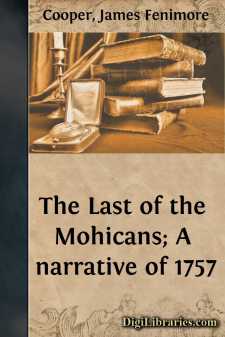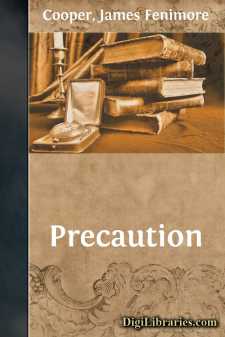Categories
- Antiques & Collectibles 13
- Architecture 36
- Art 48
- Bibles 22
- Biography & Autobiography 815
- Body, Mind & Spirit 144
- Business & Economics 28
- Children's Books 18
- Children's Fiction 14
- Computers 4
- Cooking 94
- Crafts & Hobbies 4
- Drama 346
- Education 58
- Family & Relationships 59
- Fiction 11835
- Games 19
- Gardening 17
- Health & Fitness 34
- History 1378
- House & Home 1
- Humor 147
- Juvenile Fiction 1873
- Juvenile Nonfiction 202
- Language Arts & Disciplines 89
- Law 16
- Literary Collections 686
- Literary Criticism 179
- Mathematics 13
- Medical 41
- Music 40
- Nature 180
- Non-Classifiable 1768
- Performing Arts 7
- Periodicals 1453
- Philosophy 65
- Photography 2
- Poetry 896
- Political Science 203
- Psychology 44
- Reference 154
- Religion 515
- Science 126
- Self-Help 85
- Social Science 83
- Sports & Recreation 34
- Study Aids 3
- Technology & Engineering 60
- Transportation 23
- Travel 463
- True Crime 29
Sort by:
Chapter I. Day glimmered and I went, a gentle breezeRuffling the Leman lake. Rogers. The year was in its fall, according to a poetical expression of our own, and the morning bright, as the fairest and swiftest bark that navigated the Leman lay at the quay of the ancient and historical town of Geneva, ready to depart for the country of Vaud. This vessel was called the Winkelried, in commemoration of...
more...
Chapter I."Good morrow, coz.Good morrow, sweet Hero."SHAKSPEARE.When Mr. Effingham determined to return home, he sent orders to his agent to prepare his town-house in New-York for his reception, intending to pass a month or two in it, then to repair to Washington for a few weeks, at the close of its season, and to visit his country residence when the spring should fairly open. Accordingly, Eve...
more...
CHAPTER 1 "Mine ear is open, and my heart prepared:The worst is wordly loss thou canst unfold:—Say, is my kingdom lost?"—Shakespeare It was a feature peculiar to the colonial wars of North America, that the toils and dangers of the wilderness were to be encountered before the adverse hosts could meet. A wide and apparently an impervious boundary of forests severed the possessions of the...
more...
RESIDENCE LETTER I. Influence of the late Revolution in France.—General Lafayette—Sketch of his Private Life.—My visits to him.—His opinion of Louis XVI.—Mr. Morris and Mr. Crawford.—Duplicity of Louis XVIII.—Charles X.—Marie Antoinette.—Legitimacy of the Duc de Bordeaux.—Discovery of the Plot of 1822.—Lafayette's conduct on that occasion.—A negro Spy.—General...
more...
Chapter VI."But, by your leave,I am an officer of state, and comeTo speak with--"Coriolanus.Notwithstanding the sharp look which the Messenger of the Crown deliberately and now openly fastened on the master of Wish-Ton-Wish, while the latter was reading the instrument that was placed before his eyes, there was no evidence of uneasiness to be detected in the unmoved features of the latter. Mark...
more...
Preface. In one respect, this book is a parallel to Franklin's well-known apologue of the hatter and his sign. It was commenced with a sole view to exhibit the present state of society in the United States, through the agency, in part, of a set of characters with different peculiarities, who had freshly arrived from Europe, and to whom the distinctive features of the country would be apt to...
more...
Chapter I. "'Twas a commodity lay fretting by you; 'Twill bring you gain, or perish on the seas." Taming of the Shrew. There is nothing in which American Liberty, not always as much restrained as it might be, has manifested a more decided tendency to run riot, than in the use of names. As for Christian names, the Heathen Mythology, the Bible, Ancient History, and all the classics,...
more...
Chapter I. ----"When that's goneHe shall drink naught but brine." Tempest. While there is less of that high polish in America that is obtained by long intercourse with the great world, than is to be found in nearly every European country, there is much less positive rusticity also. There, the extremes of society are widely separated, repelling rather than attracting each other; while among...
more...
W. C. Bryant's Discourse on the Life, Genius, and Writings of James Fenimore Cooper, Delivered at Metropolitan Hall, N.Y., February 25, 1852. It is now somewhat more than a year, since the friends of James Fenimore Cooper, in this city; were planning to give a public dinner to his honor. It was intended as an expression both of the regard they bore him personally, and of the pride they took in the...
more...
Chapter I. --"But I'll not chide thee;Let shame come when it will, I do not call it;I do not bid the thunder-bearer shoot,Nor tell tales of thee to high-judging Jove;Mend when thou canst--" Lear. It is almost as impossible to describe minutely what occurred on the boat's reaching the Wallingford, as to describe all the terrific incidents of the struggle between Drewett and myself in...
more...











